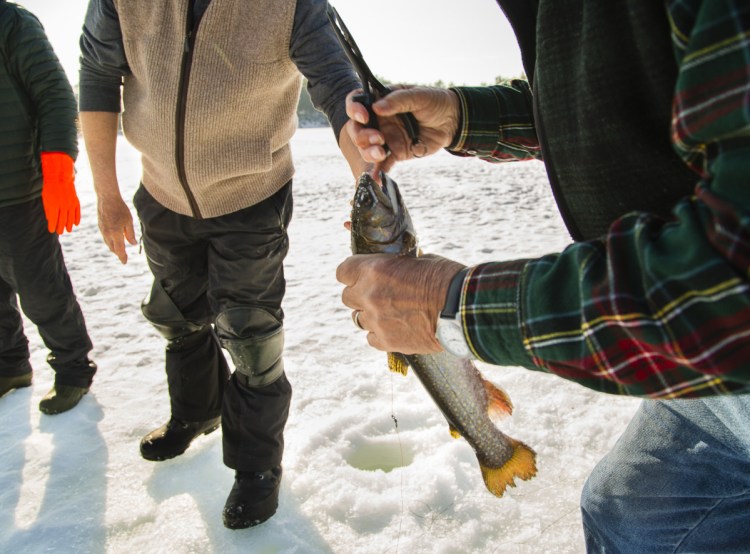Disclaimer: I’m not your typical Mainer. I don’t hunt, fish or ski. I don’t own a sled, boat or canoe. I love the outdoors – I’m just not one to spend a lot of time there. However, on Sundays I find myself drawn to the Outdoors section of the Maine Sunday Telegram. Last week (Feb. 24), I found myself immersed in another subject I have zero interest in: ice fishing.
The article titled “Hook and cook” (Page A16) told stories of some who enjoy the sport and cook their trophies onsite. There’s an offering of the best recipes for enjoying some Maine favorites: togue, cusk, pike and bass. Species that to me, sound as appetizing as an old Bean boot you’d pull out of Sebago Lake.
The article also described the state’s guidelines for limiting the consumption of Maine freshwater fish to one or two fish per month. Wait, what?
It’s true. Because of the mercury, dioxins, DDT and polychlorinated biphenyl compounds found in some Maine waters, the Department of Inland Fisheries and Wildlife recommends limiting consumption to one or two fish per month from many sources, with an ominous warning – “Do not eat any fish from these waters” – for a select few of Maine’s waterways.
Granted, freshwater fish are an acquired taste not shared by the masses. But the environment that’s making the fish unhealthy is shared by the masses. It’s not difficult to realize what role our lakes and rivers play in the lives of all Mainers.
For the record, PCBs were banned in 1979 and dioxins have been reduced by 90 percent over the last 30 years. Yet these carcinogens remain a problem in Maine waterways today. Is this our own canary in the coal mine? Some waterways in Maine are so polluted that we cannot eat the fish. The way life should be?
Robert Barden
Portland
Send questions/comments to the editors.



Success. Please wait for the page to reload. If the page does not reload within 5 seconds, please refresh the page.
Enter your email and password to access comments.
Hi, to comment on stories you must . This profile is in addition to your subscription and website login.
Already have a commenting profile? .
Invalid username/password.
Please check your email to confirm and complete your registration.
Only subscribers are eligible to post comments. Please subscribe or login first for digital access. Here’s why.
Use the form below to reset your password. When you've submitted your account email, we will send an email with a reset code.